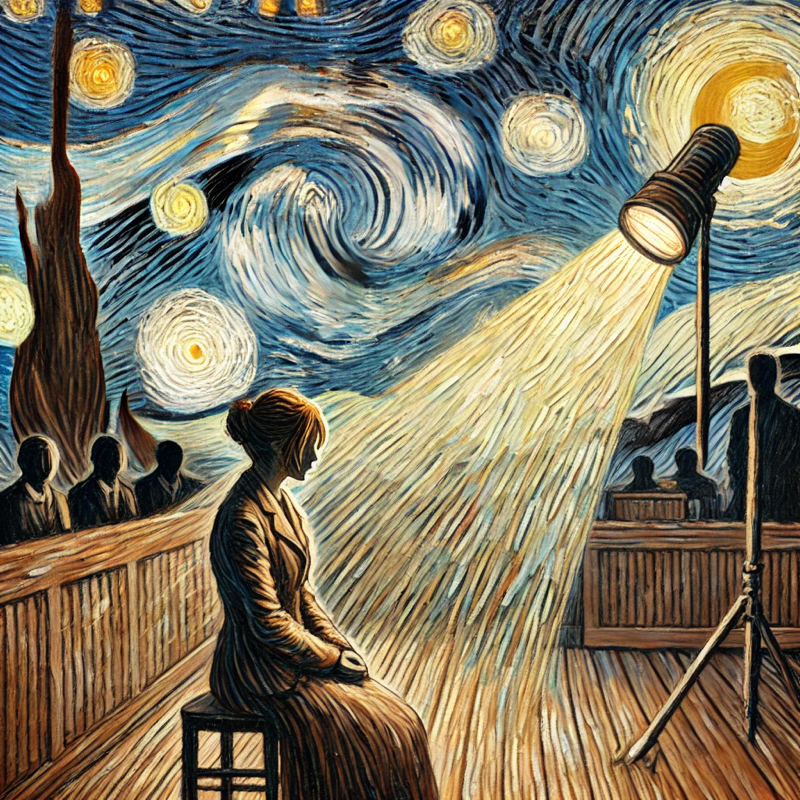Winona Ryder: A Case of Public Stigma and Redemption

Winona Ryder was once one of Hollywood’s most beloved actresses, known for her roles in iconic films like Beetlejuice, Edward Scissorhands, and Girl, Interrupted. However, in 2001, her name became associated with an entirely different narrative—one of scandal and criminal charges. The media frenzy surrounding her shoplifting arrest quickly turned her into a symbol of disgrace, overshadowing her career and contributions to cinema. But what followed was a journey of resilience, redemption, and a public reassessment of stigma.
The Events That Led to Stigma
In December 2001, Winona Ryder was arrested for shoplifting over $5,000 worth of merchandise from Saks Fifth Avenue in Beverly Hills. The case became a media spectacle, with tabloids and entertainment news outlets portraying her as a fallen star. The trial that followed resulted in a conviction for grand theft, vandalism, and burglary. She was sentenced to probation, community service, and fines, but the true punishment came in the form of public perception.
Before the incident, Ryder had built a reputation as an intelligent, talented actress with an air of mystique. However, in the wake of the scandal, she became a subject of ridicule. Late-night hosts made her the punchline of jokes, and the industry that once adored her seemed to turn its back. Film offers dwindled, and for years, she largely disappeared from Hollywood’s radar.
The Effect of Stigma on Her Life and Career
Stigma, especially when fueled by media narratives, has a powerful ability to redefine a person’s identity in the eyes of the public. For Winona Ryder, the shoplifting scandal overshadowed her decades of work. The perception of her shifted from being a talented actress to a troubled figure—a transformation that had significant consequences.
Hollywood is notoriously unforgiving when it comes to scandal. While some celebrities manage to stage quick comebacks, Ryder found herself pushed to the margins. The industry, which had always thrived on its leading ladies, suddenly saw her as a liability. Roles were taken away, and the public seemed to forget the breadth of her talent.
Beyond professional repercussions, the emotional toll of being stigmatized was evident. Ryder later spoke about struggling with anxiety and depression during that time, and it became clear that the incident was more than just a lapse in judgment—it was a deeply personal moment that had been weaponized against her.
Lessons We Can Learn
Winona Ryder’s story is a powerful reminder of the way stigma functions in society. There are several key takeaways:
- Public Perception is Often Unforgiving – Society tends to reduce individuals to singular moments, ignoring the complexity of their experiences. In Ryder’s case, a single incident overshadowed years of professional achievements.
- Mental Health and Stigma are Intertwined – The shoplifting case wasn’t just about theft; it was about deeper struggles with mental health. However, rather than addressing these struggles with compassion, the media focused on humiliation and sensationalism.
- Redemption is Possible, But Difficult – Despite the years of exile from Hollywood, Ryder eventually found her way back. Her role in Stranger Things reignited public appreciation for her talent. However, her return was not immediate—it took patience, resilience, and time for people to look beyond the stigma.
- The Media Plays a Significant Role in Stigmatization – The way media outlets frame stories has lasting impacts on individuals’ reputations. In Ryder’s case, the narrative shifted from her being a critically acclaimed actress to a disgraced figure, all within weeks.
Conclusion
Winona Ryder’s journey through stigma and redemption is a compelling study of how society treats individuals who make mistakes. The shoplifting incident may have changed the course of her career, but it did not define her forever. With time, talent, and perseverance, she was able to reclaim her place in the industry, proving that one mistake should not erase an entire legacy.
Her story serves as a lesson in empathy, reminding us to look beyond singular moments of controversy and recognize the full humanity of those we judge. Stigma is powerful, but so is the ability to overcome it.
